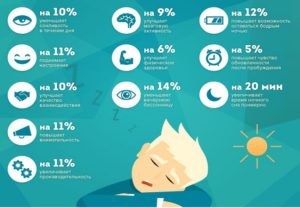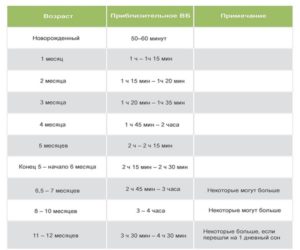Content
- 1 The benefits of daytime sleep
- 2 How to sleep properly during the day
- 3 Is nap good for weight loss
- 4 Why naps are good for children
- 5 The harm of daytime sleep
- 6 To whom and why it is not recommended to sleep during the day
- 7 Why do you want to sleep after dinner
- 8 What to do if you want to sleep at work
- 9 Conclusion
The benefits and harms of daytime sleep for adults and children are often discussed by scientists and ordinary people. In all kindergartens, children are placed in a quiet hour. In Japan, the USA, some European countries, the practice of sleeping breaks during the working day is spread. Unfortunately, Russia is still far from such innovations. However, no one bothers to independently add time for daytime sleep to your daily routine. Read more about this, as well as the benefits of sleeping during the day, in the article.
The benefits of daytime sleep

Scientists claim that sleeping twice a day for an adult is the norm. The same benefits of daytime sleep for men and women of different ages, as well as children, are noted. The need is caused by the biorhythms of our body. The metabolic rate also changes. So, experiments were carried out that showed the following property of the human body: from 13 to 15 o'clock in the afternoon, the human body temperature slightly decreases. Moreover, this does not depend on whether he took food or not, as well as on how much he slept at night.
The benefits of daytime sleep for humans are expressed in the following:
- physical strength is restored;
- lethargy, drowsiness disappears;
- response improves;
- concentration increases;
- working capacity, labor productivity;
- energy reserves are replenished;
- the benefits of daytime sleep for the appearance of women are noted, etc.

For the brain
Brain activity recovers even after 15 minutes of rest. He is ready to go again. If the work is associated with mental stress, after rest, the person is as effective as before. Concentration improves, mood rises.
During rest, the brain is freed from unnecessary information. Useful, on the contrary, is structured and absorbed faster; it is easier to remember what has already been studied.
If you sleep at lunchtime, the speed of visual reactions by the evening does not significantly decrease.
For the nervous system
The benefits of an afternoon nap for the nervous system: Reduces the amount of stress hormones that have the property of negatively affecting the nervous system. As a result, nervous tension decreases, the person relaxes. The body acquires such a useful property as resistance to stress.
For the cardiovascular system
Studies have shown a reduction in the risk of diseases of the cardiovascular system. Their likelihood is reduced by 40%, if you arrange a day's rest at least 3 times a week. In addition, there has been a decrease in the risk of stroke and heart attack.
How to sleep properly during the day
A short nap can be more effective and healthier than a cup of coffee. In order to feel cheerful and energetic afterwards, and not overwhelmed and lethargic, to avoid possible harm, you must adhere to simple rules.
- Observe the regime, that is, fall asleep every time at about the same time.
- Do not sleep for more than 2 hours.
- Be sure to set an alarm so that the break does not drag on for several hours or even until the evening.
- The resting place should be comfortable.
How much can you sleep during the day

Various studies show different optimal nap times, from 15 minutes to 2 hours.
Most often, they come to the conclusion that an adult needs 20 minutes to regain strength. At the same time, from less time, for example, 10 minutes, there is no benefit or harm.
Research is still being carried out. Different types of activities and the required recovery time are studied. For example, astronauts benefit from 2 hours of nap during the day and 4 hours of sleep at night.
Is nap good for weight loss
There is no direct relationship between daytime sleep and weight loss. However, the indirect benefits of sleeping after dinner have been noticed.
Cortisol, a stress hormone, contributes to the increase in subcutaneous fat. When a person sleeps, his level decreases, therefore, his property associated with the deposition of fat reserves by the body is neutralized.
There are other side properties:
- in the evening, energy remains for sports or other useful activity;
- metabolism is normalized.
Why naps are good for children
The benefits of sleeping during the daytime for children are invaluable. It is necessary for their normal development.
A small organism is not yet ready to stay awake all day long. The brain is constantly assimilating new information. There is often an overabundance of impressions even in the first half of the day. Therefore, many babies throw tantrums if they are not put to bed on time. This is not due to the whims of the child, but from an overabundance of emotions and information.
During sleep, the nervous system rests, information received from the outside is assimilated. Daytime sleep is the basis for a child's health and a stable psyche in the future.
Refusal from daytime sleep occurs individually: according to the recommendations of specialists, not earlier than 5 years in order to avoid harm to the growing person.
Duration of daytime sleep in children
The benefits and harms of daytime sleep for an adult are radically different from its effects on a child's body. Doctors have compiled approximate norms of sleep and wakefulness of children, but you need to focus specifically on your child.
Newborns sleep almost all the time. The older you get, the less frequent and shorter your sleep breaks become.
Here are the recommended wake times for your baby's first year.

It is necessary to put the child to bed, even if, at first glance, he does not seem tired or sleepy. He himself will soon fall asleep. If you "overexpose" the child a little, then problems with laying down may arise. This will take more time, since it is difficult for the child's body to fall asleep due to overwork.
At 1 year, sleep is reduced to 1 or 2 times during the day, lasting 2 to 3 hours. From 2 to 5 years 1 time, duration 1 - 2.5 hours. Then everything is individual: you need to look at the biorhythms of the child and monitor his condition during the day.
Most often, by the age of 7, when a child goes to school, he himself stops sleeping during the day. But don't ignore the benefits of naps for teens. If the school has a high workload, it will help to avoid overwork and harm to health.
The harm of daytime sleep
If sleepiness during the day appears for no apparent reason, it may be a symptom of a disease. In such cases, it is better to insure yourself, go to the doctor to prevent harm to health.
The urge to sleep is sometimes a side effect of medications or problems with sleeping at night. In both cases, this is a consequence of existing problems.
The benefits and harms of sleeping after eating depend on how long it lasts. By itself, it can only cause harm if it is excessive. If you sleep for more than 3 hours, then as a result:
- biorhythms go astray;
- insomnia appears;
- headache;
- lethargy;
- bad mood;
- distraction;
- irritation and even aggression;
- mental and physical abilities decrease upon awakening;
- difficult to wake up;
- it is difficult to force yourself to take up work again;
- there have been cases of increased blood pressure.

Such negative properties are manifested if, during rest, a person enters a deep phase of sleep. Often a similar situation occurs in the morning, when you need to wake up with an alarm clock. It is useful to set your mode so that the awakening does not fall on a deep phase. Special applications for the phone have even been created to help.
It is important to follow the regimen and not replace night sleep with daytime sleep, except when you have to work the night shift.
To whom and why it is not recommended to sleep during the day
If a person has no need for daytime sleep, then there is no need to force yourself to sleep.
In particular, it is worth giving up the afternoon break if you have problems with night sleep or insomnia. An afternoon nap instead of being beneficial will only make the problem worse. If such symptoms appear after the inclusion of rest in the daily regimen, it should also be abandoned, since a night's sleep is much more beneficial for a person.
Some studies have noted the harm of daytime sleep for people suffering from diabetes and high blood pressure. An afternoon break can worsen your health. However, everywhere we are talking about the dangers of excess sleep. No harm from a short nap after lunch was noticed.
The position of scientists regarding the benefits of daytime sleep for the elderly is ambiguous. Some talk about its benefits, while others, on the contrary, note a negative property in the form of an increased risk of stroke and some heart diseases.
Why do you want to sleep after dinner
There is no exact explanation for this property, although there are several theories explaining this pattern. For the sake of reliability, it is useful to consider each of them.
- After lunch, the blood supply to the digestive organs is increased so that the eaten food is absorbed faster. At the same time, the blood supply to the brain decreases, which makes you feel drowsy.
- Another theory is based on the properties of the parasympathetic nervous system - the one that is responsible for relaxing the human body. After lunch, it is she who begins to act, since a person cannot normally assimilate food in a state of tension.
- Another popular theory is related to the hormone orexin. It regulates a person's sleep and wakefulness. After eating, the amount of this vigor hormone is reduced.
- Glucose also has the ability to reduce activity. The more sugar the red blood cells have, the less oxygen they move through the body. And since there is no oxygen, there is no energy. Therefore, coffee with a lot of sugar is most often completely useless.
- The latter theory is somewhat similar to the previous one. Drowsiness often occurs if you snack on pastries, sugary drinks, or other foods that contain so-called "fast" carbohydrates at lunchtime. The fact is that they raise blood sugar levels, but they also drop quickly. Such sudden changes can cause tiredness and drowsiness.
Scientists do not say which theory is most correct. Most likely, all of these factors together cause the urge to go to bed after dinner.
What to do if you want to sleep at work

In Japan, the United States, and European countries, some companies allow sleeping during the daytime break, thereby increasing the efficiency of employees. Specially equipped rest rooms have been created. This trend originated in hot countries, where the peak heat is observed at lunchtime.
Such useful innovations are not found everywhere. This practice does not exist in Russia at all. However, employees, as in other countries, sometimes require quality rest to recuperate and improve efficiency.
You don't have to sleep. You can take a nap at lunchtime in a work chair, if you have one. Enough 15-20 minutes. As a last resort, it is helpful to sit for a while in silence with your eyes closed.For the rest to be of the highest quality, you need to create a comfortable, calm environment.
Conclusion
The benefits and harms of daytime sleep are still being studied in different countries. The results differ, but not significantly. Based on the general patterns identified, people should adapt this useful habit to their own daily routine, and at the same time, for the first time, observe their well-being.

